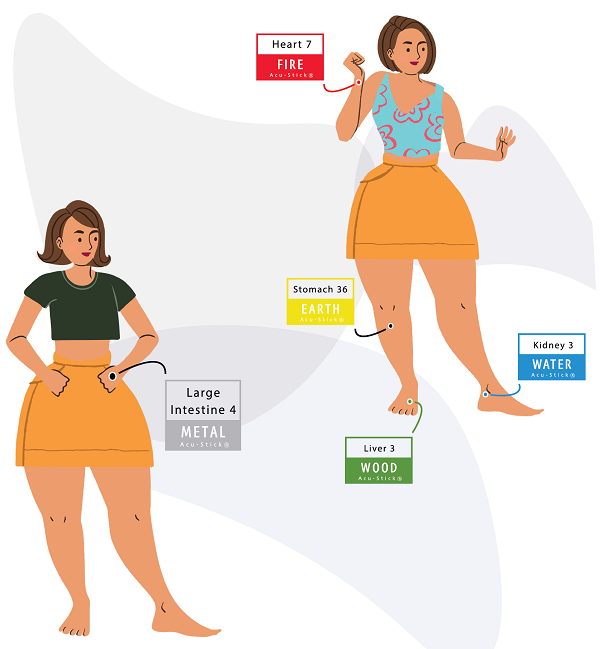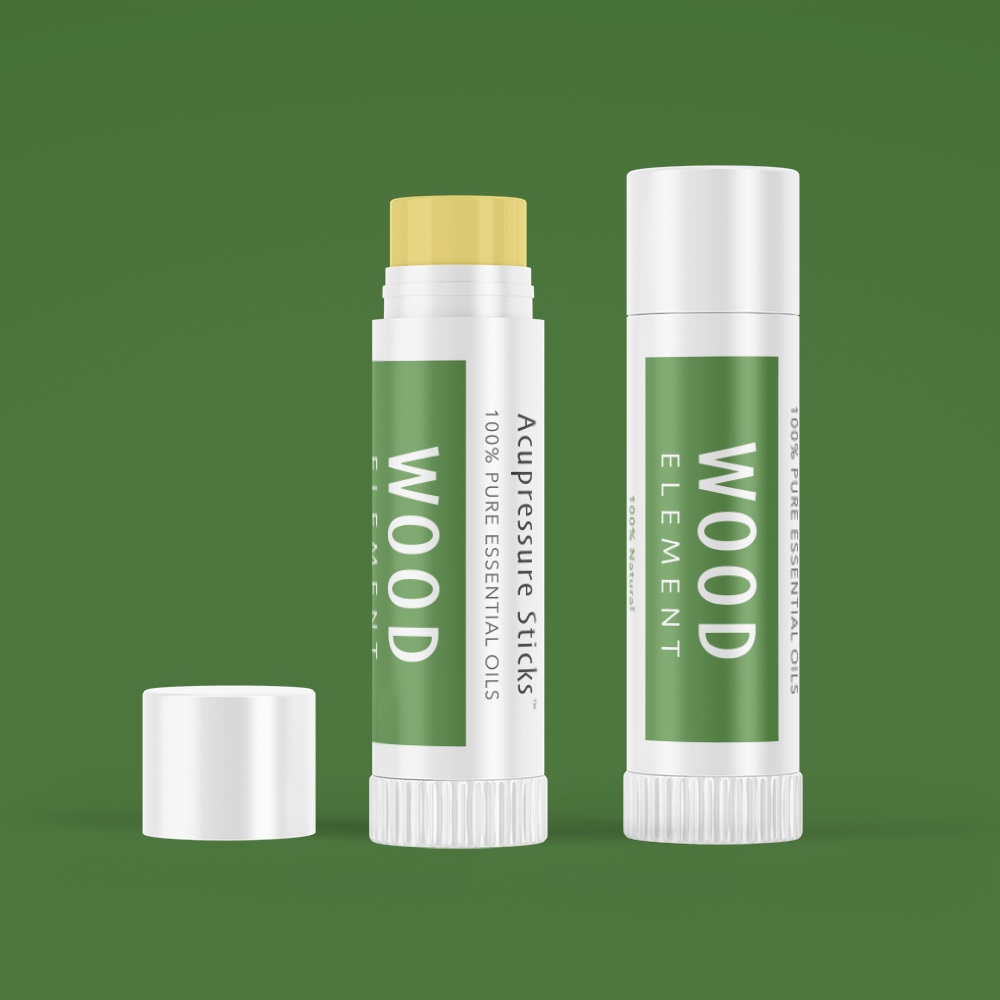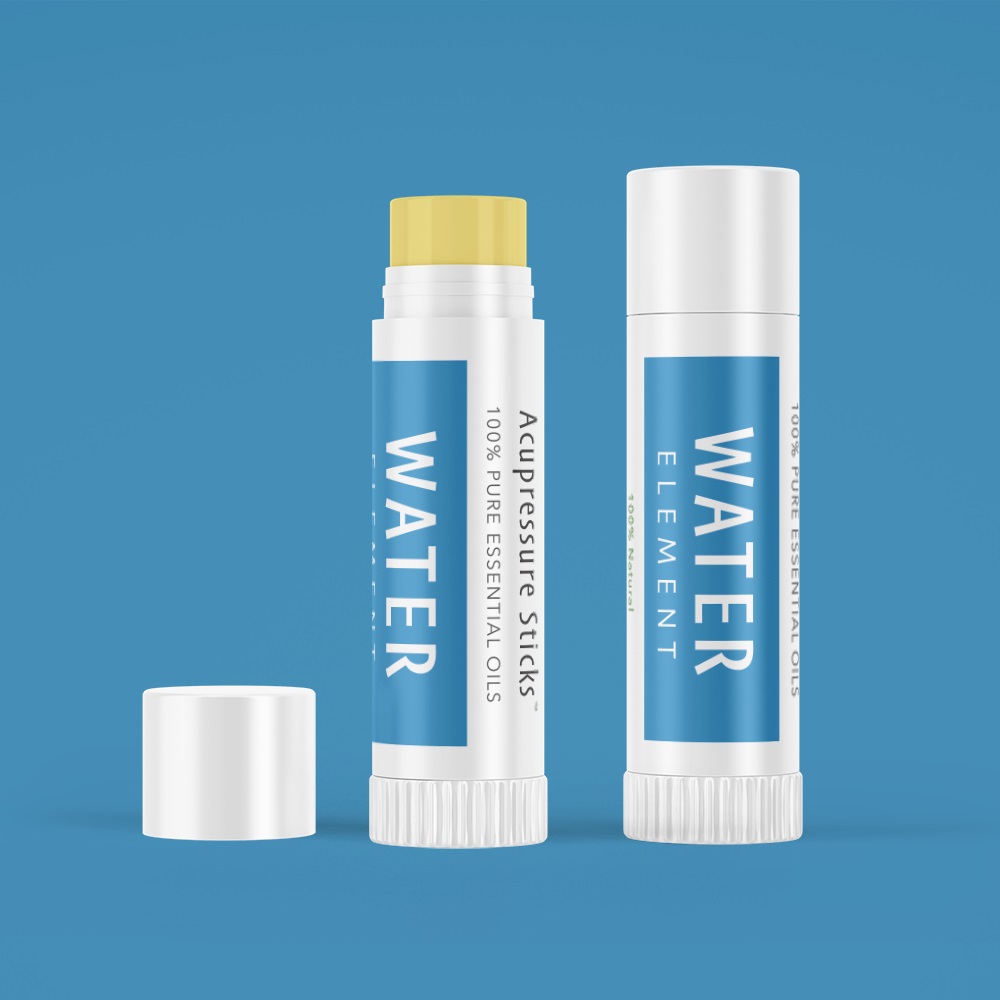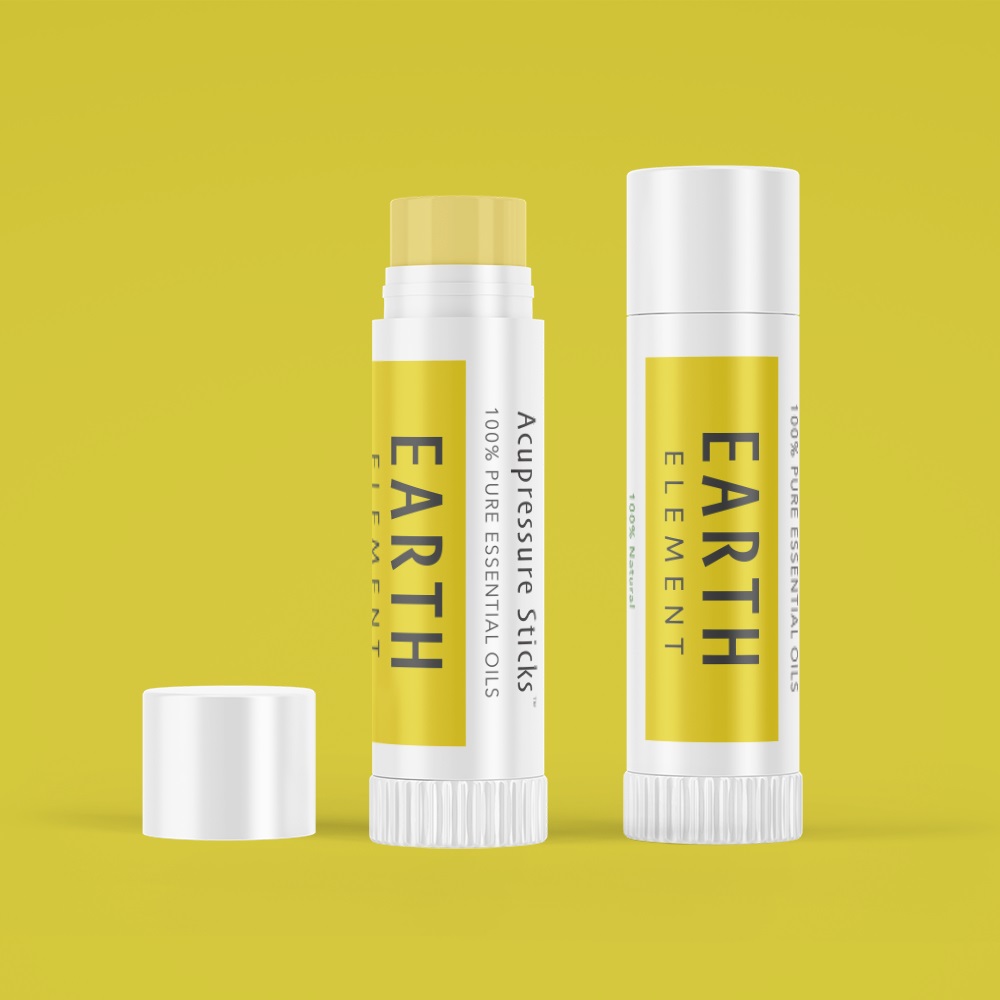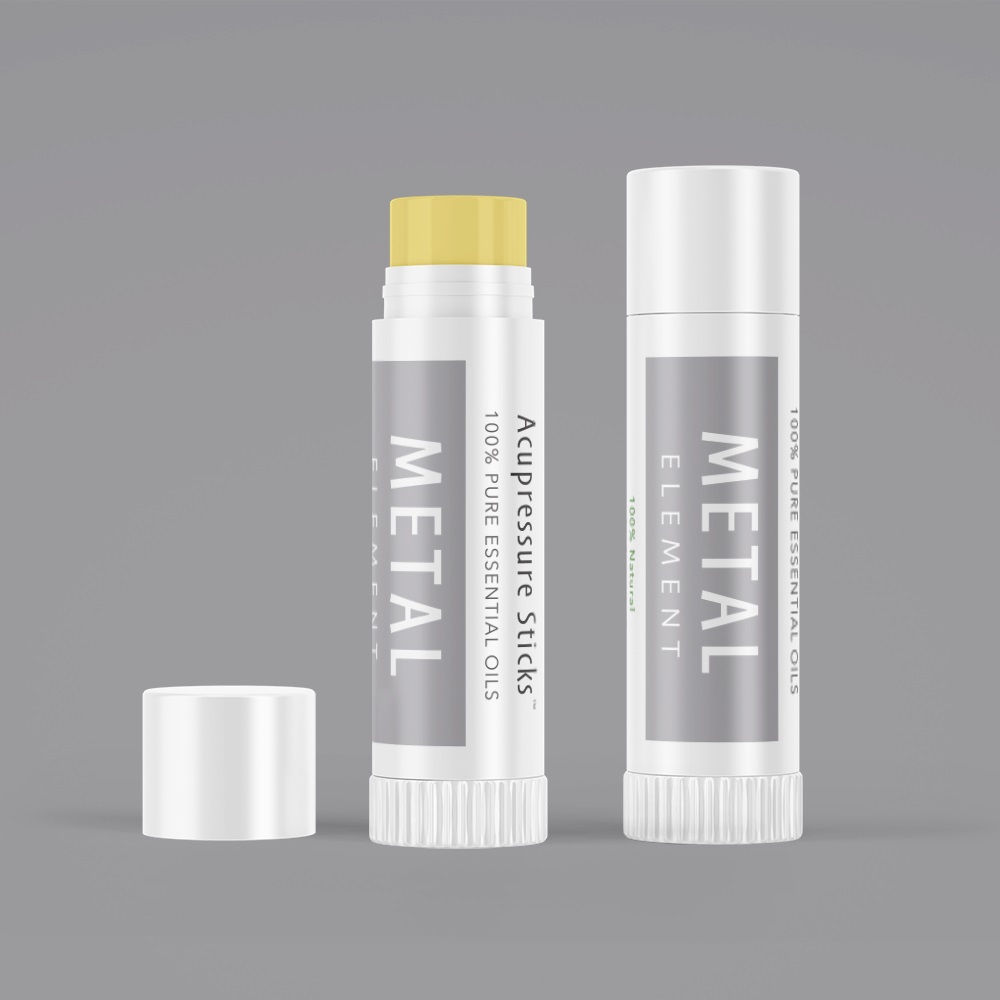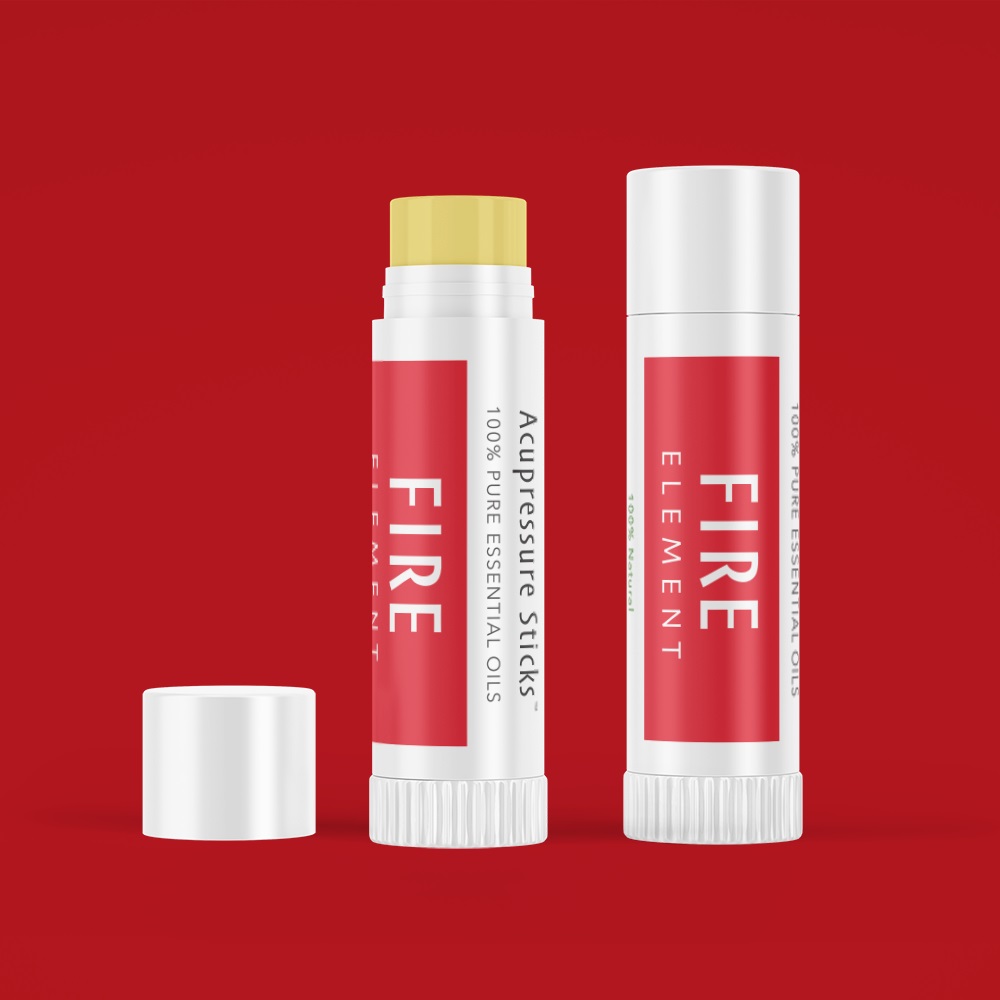Depression
Depression Protocols in Traditional Chinese Medicine
In Chinese medicine depression can be an expression of an imbalance that can be related to a number of different patterns. Traditional Chinese Medicine (TCM) holds theories that interconnect the body and the mind, and a diagnosis cannot be accurate for any bodily disease without taking in to consideration the emotional state of a person. Likewise, emotional disorders such as depression will often relate to physical imbalances or diseases when being diagnosed; Chinese medicine is effective at bringing the body-mind-spirit back in to balance, thus is able to address depression with naturally safe modalities that resolve the root imbalances rather than suppressing emotions. For best outcomes using self-care, combine associated Arom Acu-Sticks® to acu-points, topical remedies, and good lifestyle practices.
![]()
Aroma Acu-Therapy™ for Depression
Apply the Wood Element Aroma Acu-Stick® to activate Acupressure Point LV 3
Why? Acu-point Liver 3 soothes Liver Qi Stagnation causing pent-up emotions. It is one of the main causes of depression with a feeling of being emotionally stuck.
Kidney 3
Apply the Water Element Aroma Acu-Stick® to activate Acupressure Point KI 3
Why? Acu-point Kidney 3 is the Source point of the Kidney energetic organ system and tonifies Kidney Yin, and Yin of the entire body including Liver Yin and Heart Yin necessary for grounding the mind.
Apply the Earth Element Aroma Acu-Stick® to activate Acupressure Point SP 3
Why? Acu-point Spleen 3 bolsters the Earth Element and stops repetitive negative thoughts. Bolstering the Earth Element helps one to feel cared for and grounded.
Apply the Metal Element Aroma Acu-Stick® to activate Acupressure Point LI 4
Why? Acu-point Lung 9 is the Source Point of the Lung energetic organ system that is part of the Metal Element responsible for positive feelings of self-worth. It works with acu-point Liver 3 to let go of negative emotions and feelings of sadness.
Heart 7
Apply the Fire Element Aroma Acu-Stick® to activate Acupressure Point HT 7
Why? Acu-point Heart 7 is the source point for the Heart energetic organ system and calms the Shen-Mind and soothes all negative emotions.
Related Articles:
- How Aroma Acupressure Works
- Aroma Acu-therapy® Online Course
- Specific Acu-Point Locations
- The Five Elements of Chinese Medicine
Depression Constitutional Patterns in Chinese Medicine According to Symptoms
It is not uncommon for depression to present with more than one of these patterns of imbalance since it is a chronic condition that has developed over many years and likely affected multiple energetic organ systems.
Depression Related to Liver Qi Stagnation-Frustration
Depression related to Liver Qi Stagnation is the most common type of depression seen in Western culture. The Liver is of the Wood Element and helps to keep us flexible, like the bow of a tree, and able to weather the winds of life’s changes and challenges. The negative emotions associated with the Wood Element are anger, frustration, and "feeling stuck"; the positive attributes are the ability to have a plan or vision for our life, and the motivation to actualize the vision.
Depression due to Liver Qi Stagnation is likely to present with an immobile feeling of frustration due to the inability to navigate the inevitable stresses of life with a purposeful drive. This type of depression is often seen as anger turned inward, and with self dissatisfaction due to the inability to deal with life’s disappointments.
Acupressure Point Combination Strategy:
- Apply the Wood Element Acupressure Stick to Acupressure Point Liver 2
- Apply the Wood Element Acupressure Stick to Acupressure Point Liver 3
- Apply the Fire Element Acupressure Stick to Acupressure Point Heart 7
- Apply the Metal Element Acupressure Stick to Acupressure Point Large Intestine 4
![]()
Depression Related to Spleen Qi Deficiency-Worry
Depression associated with Spleen Qi Deficiency would likely manifest as extreme worry, with a propensity for patients to overeat or completely lose their appetite when feeling down. An innate feeling of disconnect of natural grounding to the Earth or feelings of not being adequately emotionally nourished would also be indications of an Earth Element imbalance.
Acupressure Point Combination Strategy:
- Apply the Wood Element Acupressure Stick to Acupressure Point Liver 3
- Apply the Fire Element Acupressure Stick to Acupressure Point Heart 7
- Apply the Earth Element Acupressure Stick to Acupressure Point Spleen 3
![]()
Depression Related to Kidney Deficiency-Anxiety
Mild cases of Kidney Deficient-type depression would involve melancholy with anxiety and panic attacks and can be addressed with self-treatment strategies. However, depression related to severe Kidney Essence Deficiency can be the most distressing types of depression and is often referred to the “dark night of the soul”. Typically, severe bouts of deep depression would be experienced without any obvious cause for the emotional plunge. The Kidney energy is closely associated with Essence (Jing - DNA), and a history of familial emotional disorders are likely. Those suffering from Kidney Deficiency induced depression are more likely to commit suicide than the other types of depression.
**This severe of a condition should be addressed with a local health care professional such as a licensed acupuncturist and mental health counsel.
Acupressure Point Combination Strategy:
- Apply the Water Element Acupressure Stick to Acupressure Point Kidney 3
- Apply the Fire Element Acupressure Stick to Acupressure Point Heart 7
- Apply the Earth Element Acupressure Stick to Acupressure Point Stomach 36
- Apply the Wood Element Acupressure Stick to Acupressure Point Liver 3
![]()
Depression Related to Metal Element Imbalances - Sadness
Depression relating to a Metal Element Imbalance is typically associated with sadness, grief, and loss. With the loss of a loved one there is a therapeutic process of grieving; however, there are also feelings of loss and grief with a business failure or divorce. Sadness and grief are normal during these times, and only becomes a clinical imbalance in Chinese medicine when the patient is unable to pass through the seven stages of grief, instead becoming emotionally stuck for a long period of time. Some people turn to anti-depressants in the throes of grief. Unfortunately, this can prevent working through the grief process, and can result in a chronic grief-based depression.
The ability to maintain self esteem and positive personal boundaries is also an attribute of the Metal Element. Most of us have a deep concern over the state of the environment, the threat of terrorism, and ongoing conflicts throughout the world; however, when this deep concern turns to depression over world events, it would signify an inability to draw personal boundaries and a clear sense of where the self ends and the world begins.
Seasonal Affective Disorder, or SAD is also an indication of a Metal imbalance. Our vibrant energy of summer is naturally supposed to wain in the fall as we turn our energy and focus inward for the winter season according to Chinese medicine. Those already suffering from imbalances associated with depression in Traditional Chinese Medicine may find that this natural state of depressed energy emphasizes their feelings of depression.
Acupressure Point Combination Strategy:
- Apply the Fire Element Acupressure Stick to Acupressure Point Heart 7
- Apply the Wood Element Acupressure Stick to Acupressure Point Liver 3
- Apply the Metal Element Acupressure Stick to Acupressure Point Lung 9
![]()
Chinese Medicine and Depression
Patients are often surprised to find that acupuncture and Chinese herbs are quite effective at addressing depression and other emotional issues, as they perceive acupuncture as only addressing physical maladies. In reality, Chinese medicine is a mind/body healing modality and is commonly used to enhance the mood and lift depression. It typically takes 4-6 months to help patients wean off of anti-depressants using Chinese medicine and should be done with the guidance of the prescribing physician.
In a clinical setting patients are often taking antidepressants like Prozac, Zoloft, Paxil, Effexor, and Wellbutrin. Chinese herbs may be an alternative to psychiatric drugs, but the more impressive fact is that Chinese medicine addresses root imbalances that can eliminate the need for any medicine. Traditional Chinese medicine (TCM) is a holistic medicine; so it can comprehensively treat conditions with both physical and mental symptoms.
![]()
Causes of Depression
Depression can have many causes in both Chinese medicine and western medicine. Not all types of depression can be helped by antidepressants, but Chinese medicine does have treatment plans to address all types of depression. Also, if your self-esteem is intact, your mood does not vary during the day, and you are not impaired socially, your depression may have a physical cause.
Some physical-biomedical causes of depression are: chronic pain, chronic fatigue, normal grief, vitamin B 12 deficiency anemia, folate deficiency, anemia, viral disease, connective tissue-collagen disorders (arthritis), an organic brain disorder, drug side-effects, cancer, and endocrine abnormalities. Chinese medicine can enhance the health of anyone with any of these conditions.
![]()
Psychiatric Drug Therapy vs. Chinese Herbs
Controlling depression with pharmaceuticals usually requires weeks or months of experimentation with various drugs at different dosages. During this experimentation, the patient experiences physical and mental side-effects which can range from the annoying to the unbearable. Chinese herbal medicine does not cause measurable side-effects and so may ultimately be preferable to psychiatric medications.
Caution: There are many grave situations where psychiatric pharmaceuticals are essential and not taking them can endanger the well-being, or even the life of the patient. More and more MD's are now working to minimize the amount of pharmaceuticals taken by each patient and some are even working with acupuncturists to utilize acupuncture and Chinese herbal medicine to slowly take the patient off of drugs and cure the root problem. Patients should never stop medication without the guidance of all practitioners involved. Studies have shown that herbs can interfere with psychotic medications so seek medical guidance with major depressive disorders or bi-polar disorder which should not be addressed with self-care modalities alone.
![]()
This information has not been evaluated by the Food and Drug Administration. This information is not intended to diagnose, treat, cure, or prevent any disease.

